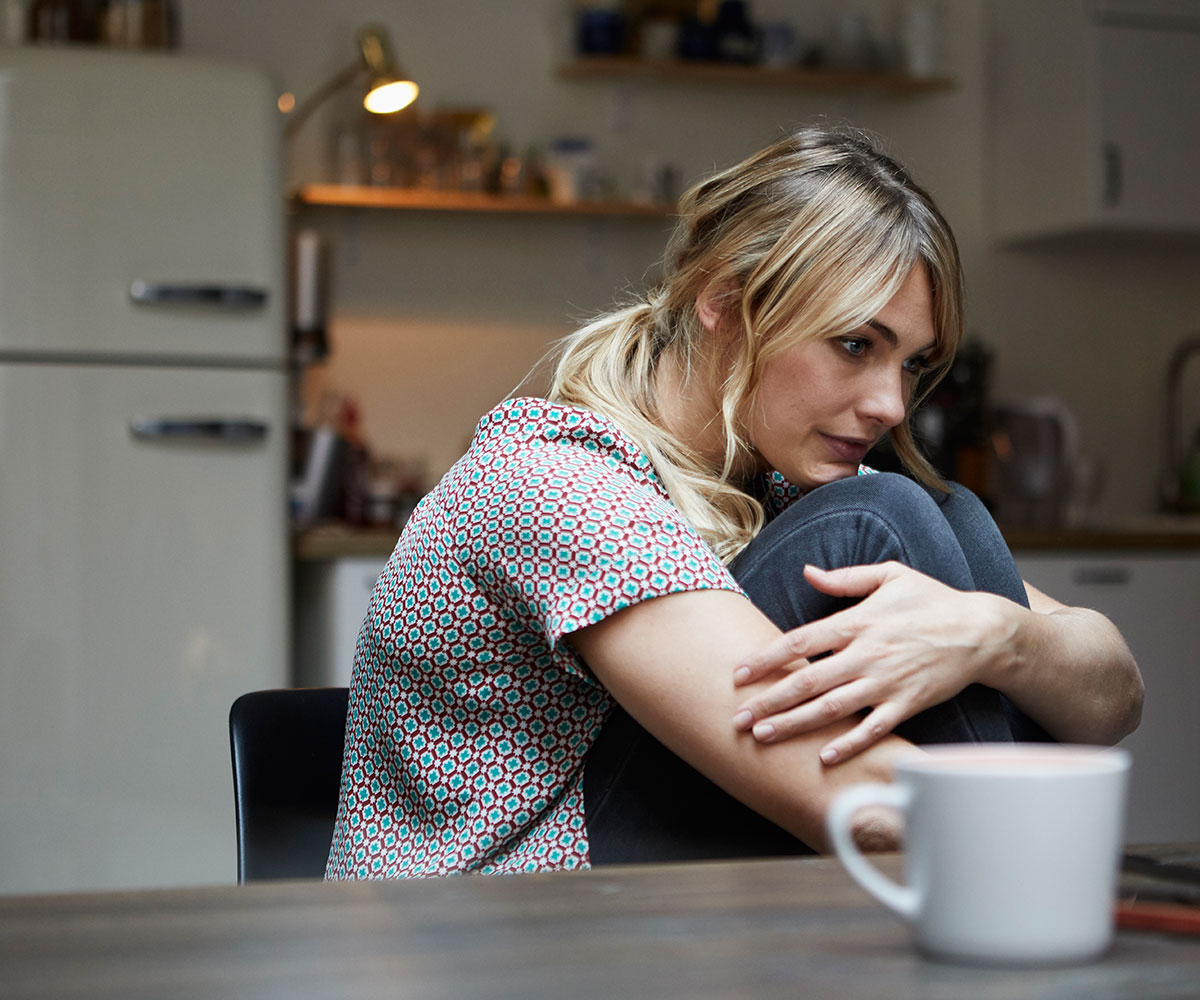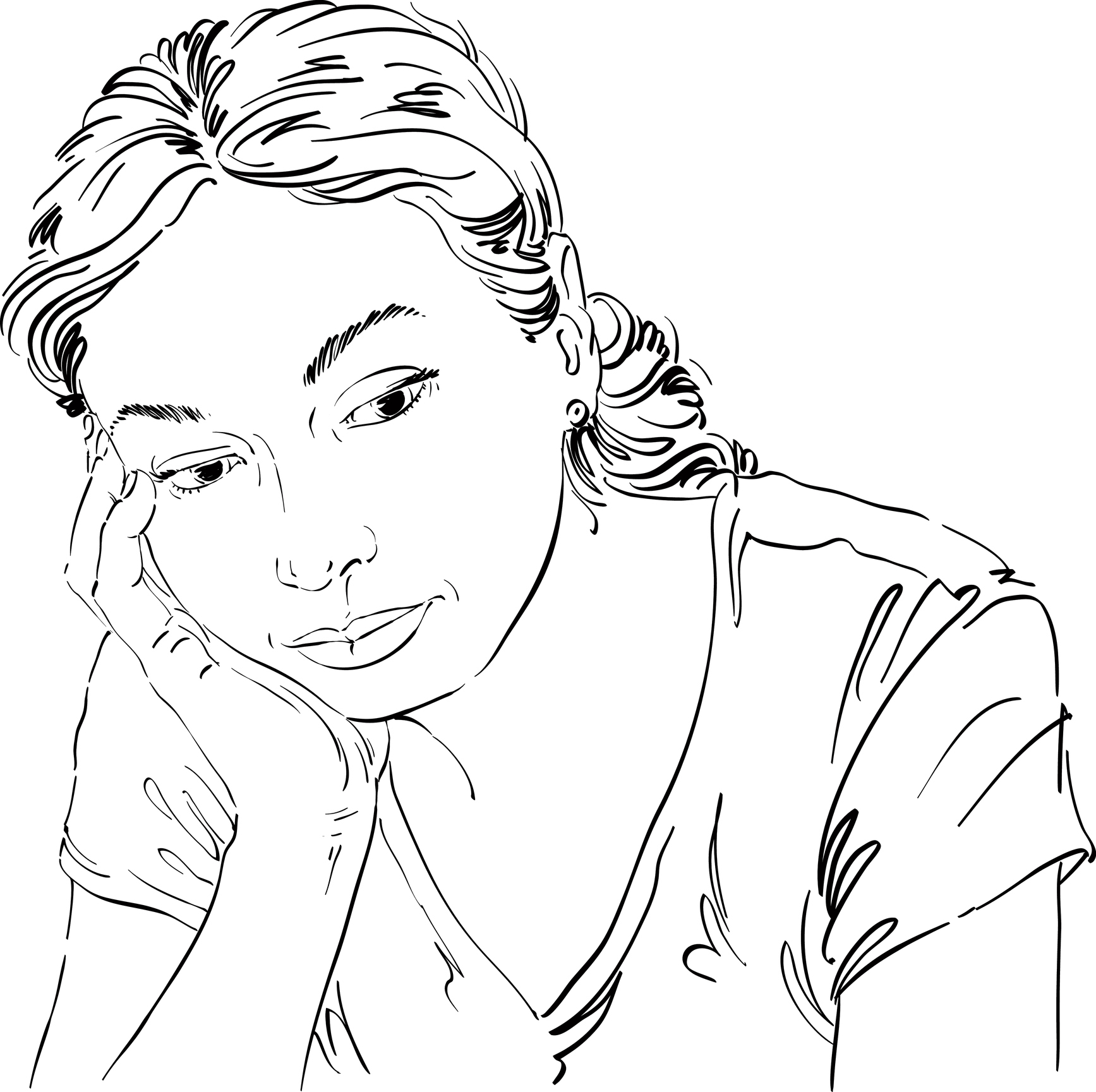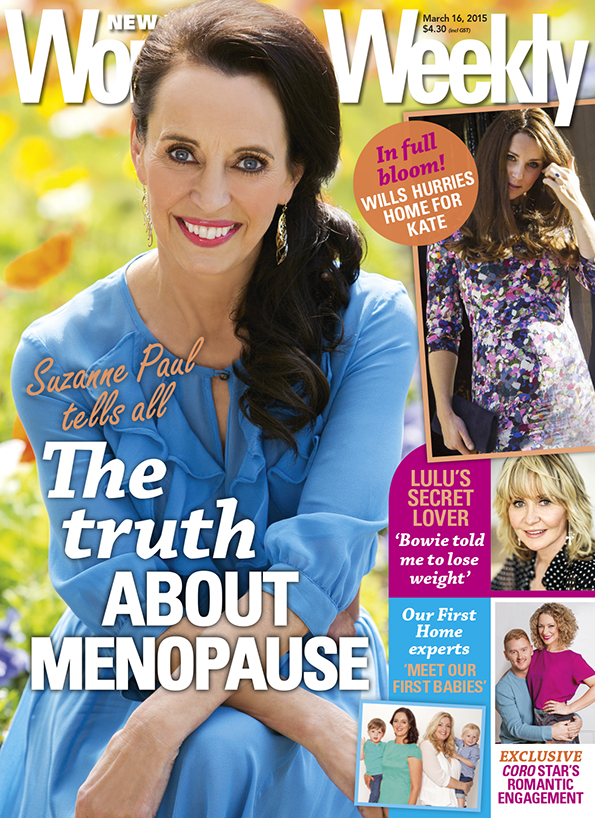“You must be pregnant,” the campus doctor announced. “I’d guess you’re at least five months along. Here’s a pregnancy test, away you go.”
The doctor had no idea what to say when three tests came back negative. He referred me for an ultrasound. A week later I was sent for surgery.
I wasn’t pregnant. A softball-sized cyst had devoured my left ovary and fallopian tube, and there was a risk it could rupture. Left with a caesarian-length scar (they removed it whole), I was told the surgery might affect my fertility.
My mum understood the implications right away, but I wasn’t worried. I was 19 and didn’t want a baby then. I spent the next 15 years actively trying not to get pregnant.
In my early thirties, my hormone levels went haywire, and my periods became increasingly irregular. Tests showed I was perimenopausal.
It shouldn’t have been a surprise – my mum and my grandmother were both in their mid-thirties when their periods stopped, my cousin in her early thirties – but I assumed it’d skip me. It didn’t.
At age 34, I met the man I wanted to have children with. Anticipating issues getting pregnant, we started trying for a baby almost immediately. Despite very low egg reserves, I got pregnant three times – twice with the assistance of a fertility clinic – and our children are now five and eight years old. I feel incredibly lucky to have them.
My periods didn’t come back after our youngest was born. By age 38, my mood swings had become constant and wild, and the sweats and the flushes that had me freezing cold one minute and wanting to tear my skin off the next were happening day and night.
I was exhausted in a way I’d never been before – a crushing fatigue that would hit without warning, but I couldn’t sleep a wink.
I became anxious and depressed, withdrawn, unfair to my husband and kids, rude to anyone unlucky enough to be around me. I felt my world was falling apart; I thought I was going mad. And it felt intensely unfair that I was going through menopause when my friends weren’t.
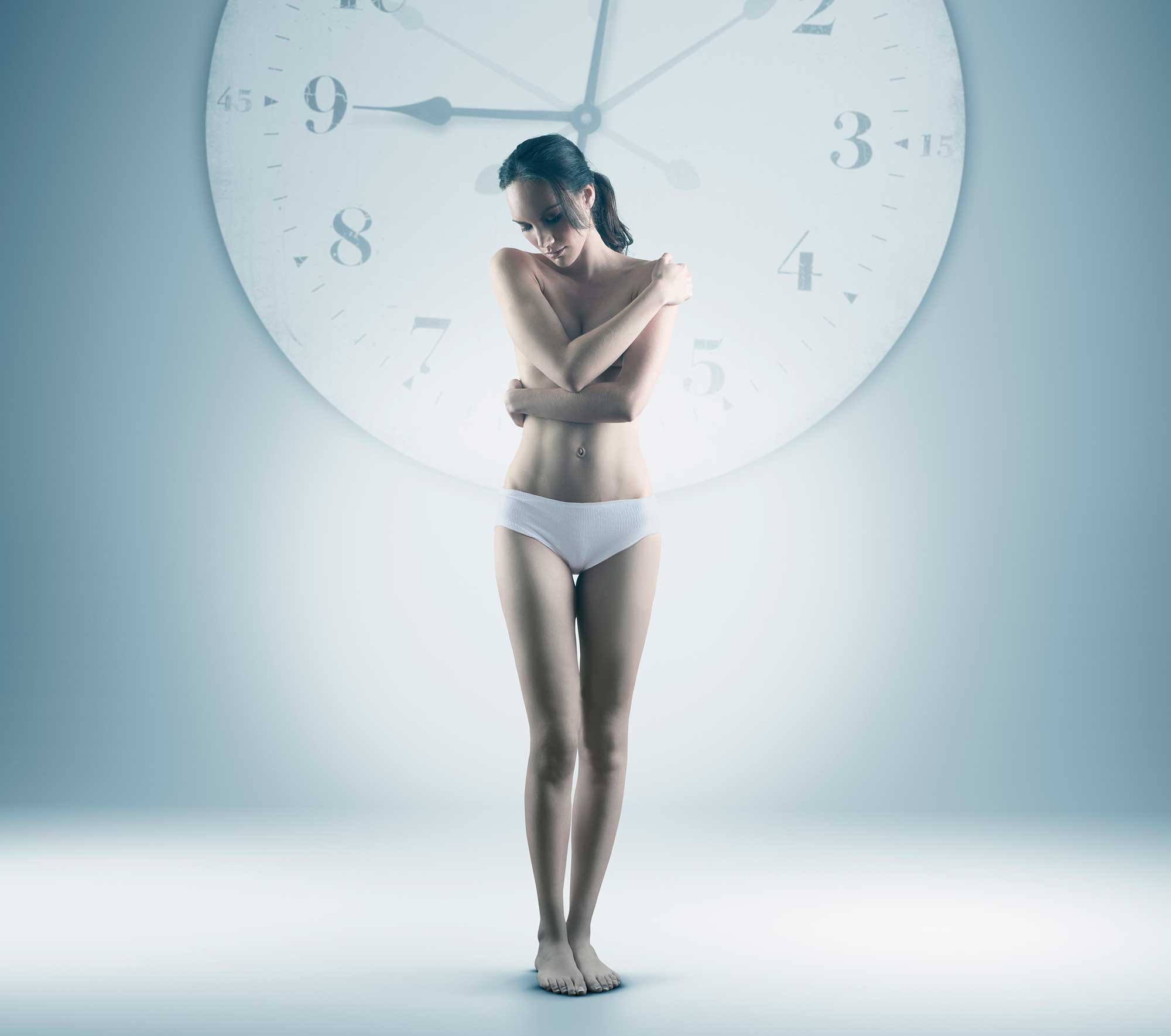
Early menopause: unexplained infertility
The average age for menopause in New Zealand women is 51. As you head towards menopause, the ovaries make less oestrogen and progesterone, eggs are no longer released, and eventually you become infertile. Premature ovarian insufficiency (POI) – what used to be called premature menopause or premature ovarian failure – occurs in one in every 100 women under the age of 40, and one in every 1000 women under 30. It can happen in very young women, even in teenagers.
“Most of the time we have no idea why a woman’s periods stop at such a young age,” says Professor Andrew Shelling, head of the Medical Genetics Group at the University of Auckland.
There are many factors that can cause premature ovarian insufficiency, including damage to the ovaries from pelvic surgery, chemotherapy or radiotherapy, some autoimmune conditions, and any issues with the X chromosome.
“Sometimes it seems to run in families,” he adds. “But in the great majority of cases, it just seems to be something that happens for no apparent reason.”
“This is an emotional diagnosis,” says endocrinologist Dr Megan Ogilvie. “Every woman will remember how and when they were told.”
When Professor Shelling first started researching POI 15 years ago, he put pamphlets in GP offices around the country, and was inundated with phone calls from women wanting to share their experiences.
In response, he set up the NZ Early Menopause Support Group, which first started as a small email-based contact group. Today, the group provides support to more than 100 members across New Zealand.
“A lot of the women just want to meet another woman with the same thing,” he says, “to talk to them just to find out they aren’t the only one – that they aren’t a freak, that this is something that happens sometimes.”

Teenage menopause
When Amanda Rollinson’s periods stopped at age 16, her GP told her not to worry – she was probably just stressed. Eighteen months later he finally sent her to a specialist, who unceremoniously told her she’d gone through menopause.
“They gave me medication, but no counselling, no support,” Amanda says.
“I went through it in isolation. Even my mum hadn’t been through it.”
Having menopause symptoms while still in school was incredibly difficult.
Her teachers knew what was happening, but her classmates didn’t.
“They put me on a form of contraceptive so I’d get a period and keep my uterus healthy, but I put on a lot of weight,” she recalls.
“When everyone was freezing, I’d be burning up. And I’d cry for no reason! I can look back and laugh about it now, but at the time it was just awful.”
Amanda realised the implications for her fertility immediately.
“I’m from a small town and life has a pattern – you leave school, you get a job locally, you get married, you have kids – so that diagnosis instantly made me different,” she says.
When it came to relationships, she also made a conscious decision to be up-front from the start.
“I think it’s different if you’re in a stable relationship as a couple and then find out you can’t have children, compared to it being one of the first things you find out when you meet somebody,” she says.
“If it’s something you really want, and you have the choice of someone who can have kids, versus someone who will have to go through an invasive IVF experience and all that goes with that… it’s hard.”
Now 42, she’s single, and has a career she loves.
“I have eight nieces and nephews and a great-nephew, so if I want that child experience I can hang out with them, and then I can return them. The lifestyle I have now actually suits me,” Amanda says.
“It took me a long time to get to a point where infertility was not my defining feature,” she says. “I’ve realised there are other things I can do with my life, and other experiences I can have that don’t include having a child.”
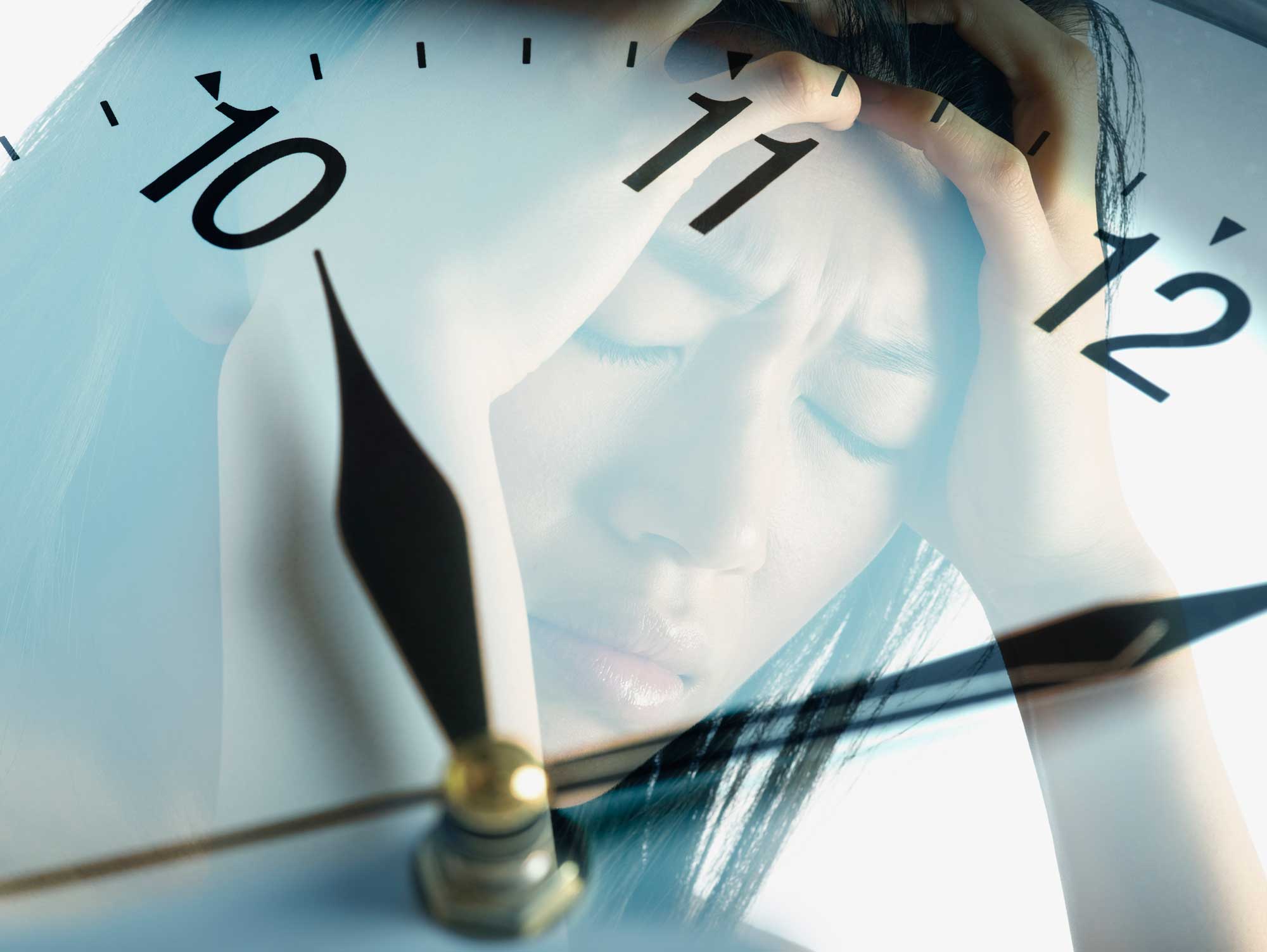
How early menopause can affect your ability to start a family
Millie* found out she had gone through menopause by accident. After suffering severe headaches, she was diagnosed with a tumour in her pituitary gland. An MRI was booked before surgery.
“I met the neurosurgeon to get the MRI results, and he said, ‘Good news – there’s no tumour.’ And then he took me three offices down to an endocrinologist.”
The endocrinologist told her she was menopausal, and if she wanted children she’d need a donor egg to get pregnant. She was 30.
Millie and partner Steve* did two unsuccessful cycles of fertility treatment with donor eggs. Both losses sent Millie spiraling into depression.
After counselling, they decided to try a third time, using a donor embryo, a complicated process that has been available in New Zealand since 2005.
The couple were chosen by their donors, met them for counselling, and then went through a legal process to adopt the embryos before any were implanted.
“Lots of people dread implantation day because it’s all medical procedures,” Millie says. “But for me it was the best day ever, because at the end of that day I was 100% sure I was pregnant.
“It was a couple of weeks before we lost Cooper. Some people don’t identify that as a baby yet, but to me it wasn’t only 10 cells, it was my baby, and he was gone.”
After the miscarriage, their fertility specialist recommended the grieving couple try again the following month, while Millie’s body was primed for pregnancy. After nine months of severe morning sickness, the couple’s treasured daughter was delivered via emergency C-section. She’s now three years old.
Millie and Steve tried for another baby, but neither attempt was successful.
“It used to be I’d see a second baby and cry,” Millie says. “But now I’m in a better headspace to come to terms with the fact that I’ve lost five babies. That’s part of my journey.”
Now in her late thirties, she’s still struggling with her hormones.
“I’m looking forward to being 50, and I’m wondering whether I’ll feel like other people then. I feel a bit of a weirdo at the moment because I’ve done this early. Other people my age just don’t get it,” she says.
* For more information and support, check out earlymenopause.org.nz.
Early warning signs and what to do
While POI often can’t be predicted, there are still warning signs you can watch for.
See your GP if…
Your periods were regular and have become irregular
Your period hasn’t restarted within three months of coming off the contraceptive pill
You’re suffering hot flashes or night sweats.
Hormone tests are a good indicator, too. Follicle stimulating hormone (FSH) produces oestrogen and progesterone, and stimulates follicles (which hold eggs) to grow. Fluctuating FSH levels can indicate the number of follicles in the ovaries are low.
An anti-mullerian hormone (AMH) test can also give an idea of the number of immature follicles in the ovaries.
The symptoms of POI are broad, so making a diagnosis isn’t always easy, but if you are diagnosed with POI, Dr Ogilvie has some advice.
“This is a difficult diagnosis, but there’s support out there, and oestrogen treatment will make you feel much better. There are fertility treatment options too,” she says.
“Women with POI still have a five to 10% chance of spontaneous pregnancy… and there are other ways to build a family, potentially through adoption or a donor egg or embryo. A positive pregnancy test isn’t the end game. What makes a parent is the relationship you build with a child.”
